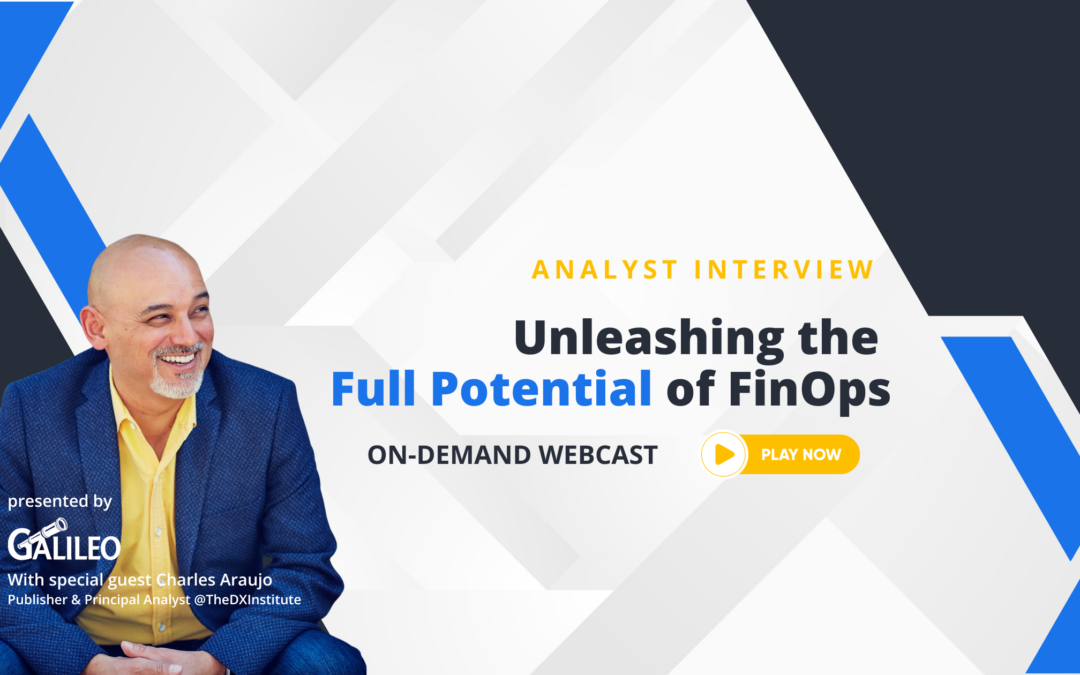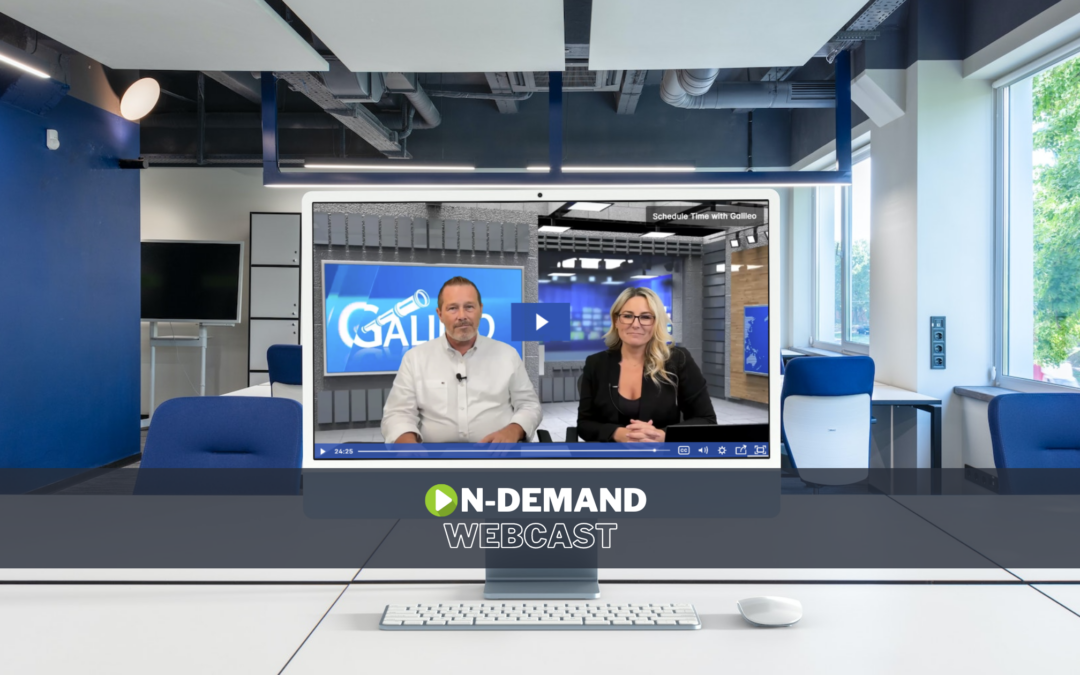In an insightful Galileo webinar interview, industry analyst Charles Araujo delved into the world of FinOps, shedding light on its significance and practical implications for IT operations professionals. As organizations increasingly grapple with the complexities of cloud computing and strive to optimize their financial management practices, understanding the core principles becomes essential.
In this article, we’ll distill the key insights from the interview, providing a basic guide to unleashing the full potential of FinOps.
1. Understanding FinOps
At its core, FinOps represents a paradigm shift in cloud operations, emphasizing the integration of financial management throughout the entire development, deployment, and optimization lifecycle. Stemming from the challenges posed by unpredictable cloud costs and evolving workloads, FinOps advocates for collaborative decision-making, data-driven insights, and accountability across all organizational levels.
2. Core Principles of FinOps
Central to the philosophy are several fundamental principles that guide its implementation. These include prioritizing business value, fostering cross-functional collaboration among development, finance, and operations teams, and decentralizing cost management responsibilities to promote accountability. While rooted in cloud environments, these principles resonate with IT organizations’ longstanding challenges across diverse infrastructures.

Complete the short form to access the full interview.
3. Expanding the Scope of FinOps
While FinOps initially emerged as a response to cloud-specific challenges, its principles hold broader relevance for managing costs across hybrid IT environments. Despite the increasing adoption of cloud technologies, most enterprise workloads continue to operate within legacy systems, underscoring the need for a holistic approach to financial management. By embracing FinOps practices, organizations can gain greater visibility and control over their IT expenditure, irrespective of the underlying infrastructure.
4. Implementing FinOps Practices
Transitioning from theory to practice, implementing FinOps requires a cultural shift within organizations. This entails prioritizing cost-conscious decision-making, investing in educational resources, and adopting tooling that provides granular insights into operational costs. Establishing a centralized team dedicated to driving FinOps initiatives can further facilitate adopting and integrating these principles into existing workflows.
5. The Role of Galileo
In navigating the complexities of modern IT infrastructures, tools like Galileo play a crucial role in enabling organizations to optimize their FinOps practices. Galileo empowers organizations to make informed decisions and streamline cost management processes by providing comprehensive visibility into operational data across cloud and legacy environments. From workload optimization to strategic planning, Galileo offers a versatile solution tailored to the evolving needs of IT operations.
Final Thoughts
As you continue to navigate the evolving landscape of cloud computing and digital transformation, embracing the principles of FinOps becomes paramount. By prioritizing collaboration, accountability, and data-driven decision-making, you can unlock the full potential of FinOps and effectively manage your IT expenditure across diverse infrastructures. You can embark on a transformative journey toward achieving financial optimization and operational excellence with the right mindset, tools, and strategies.
Ready to Take the Next Step?
Set up a Galileo demo and change how you see your infrastructure and analyze its health – FOREVER!





